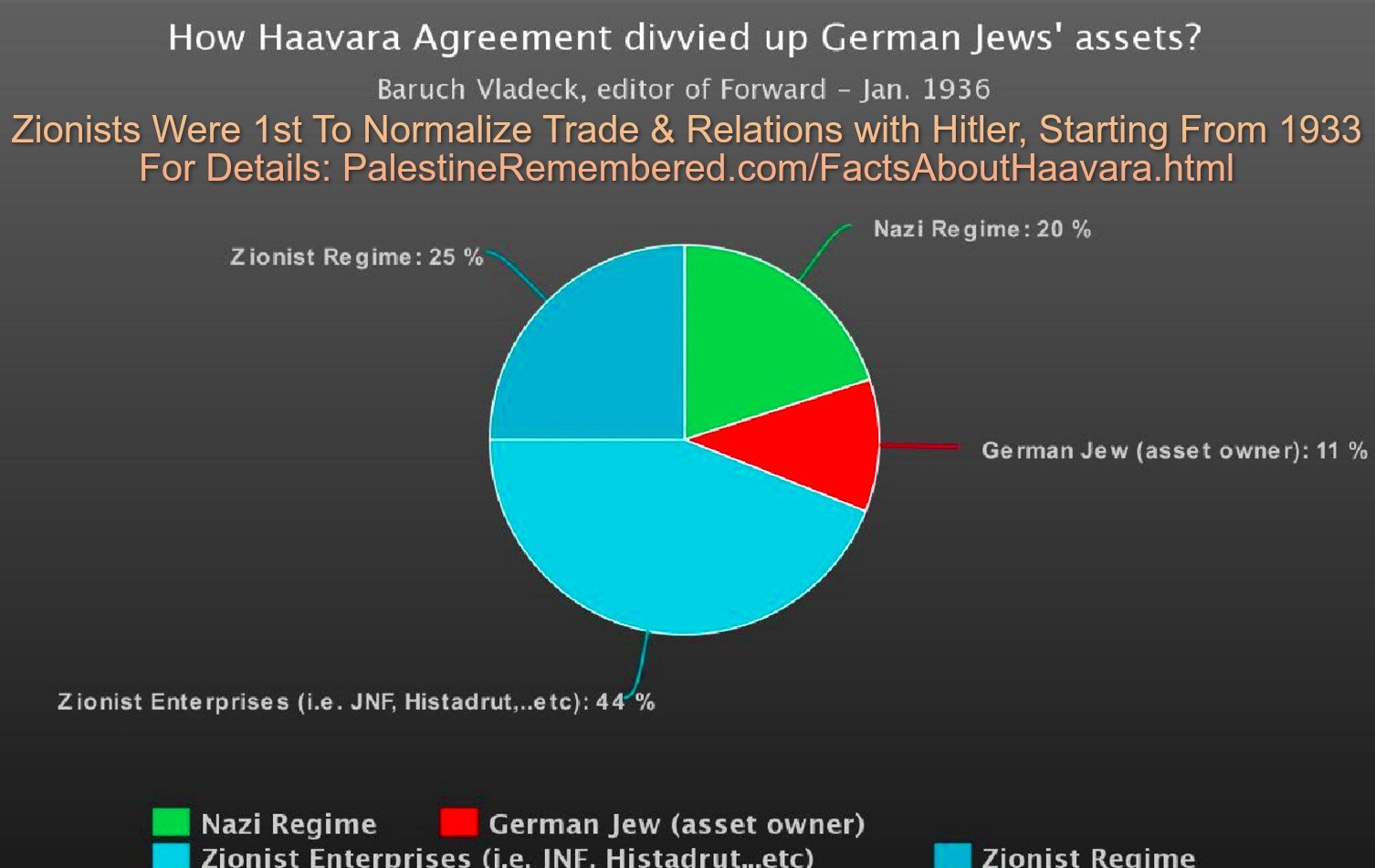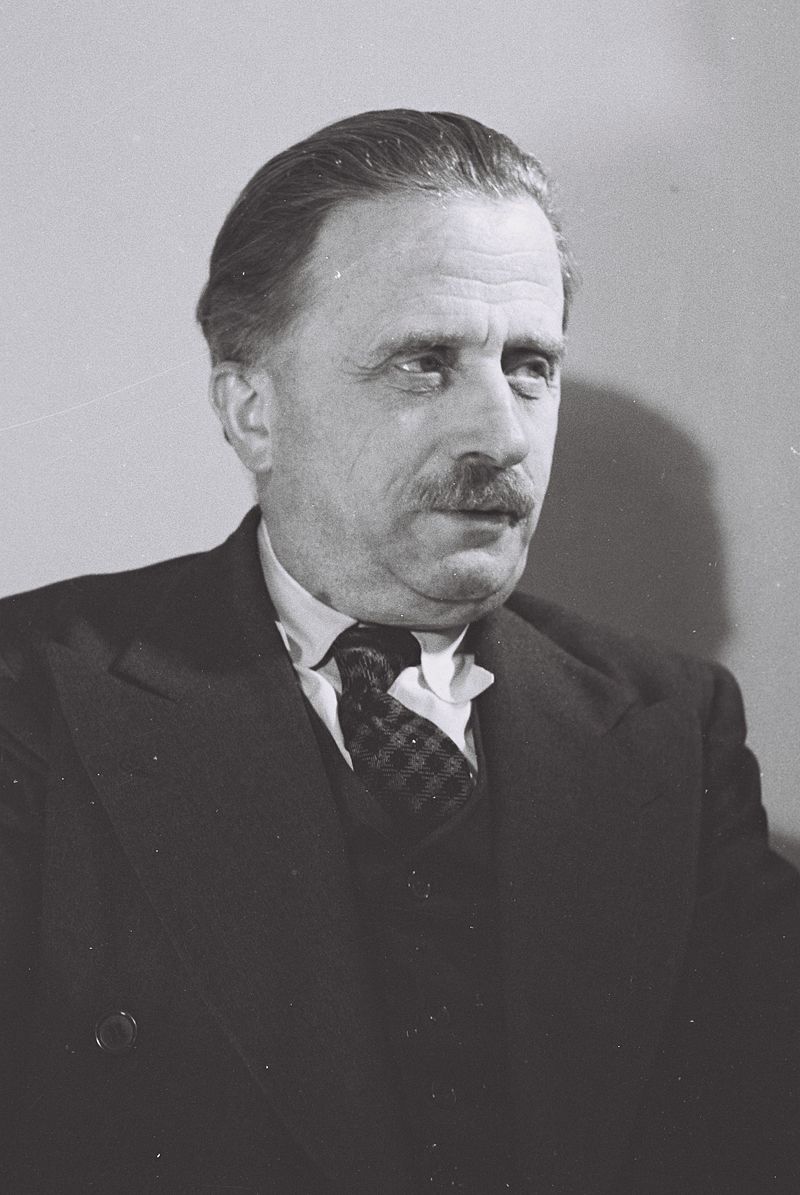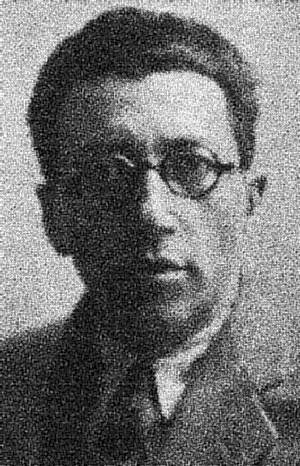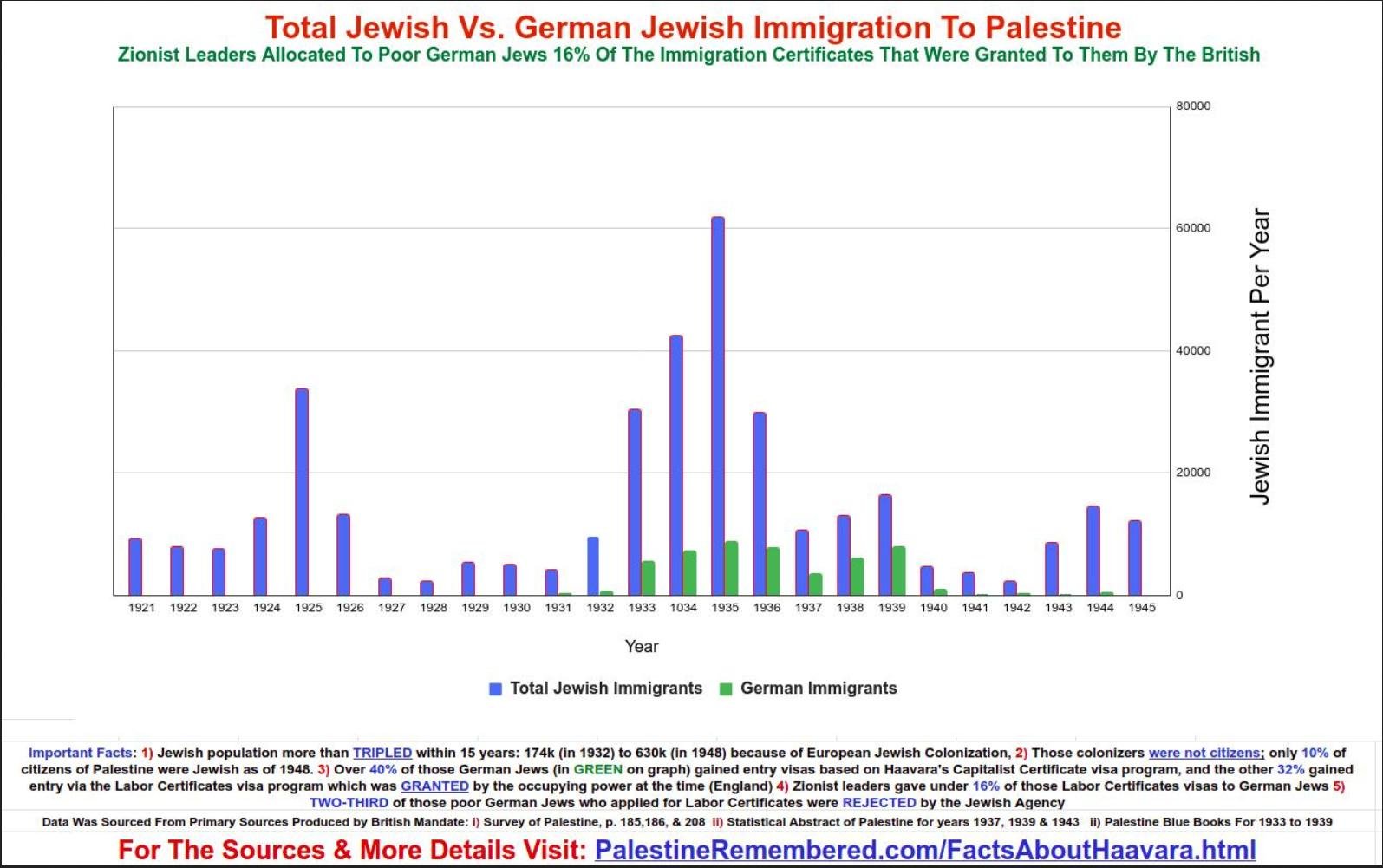January 1936
Berl Locker, headed the Palestinian Poale Zion (Workers of Zion), the Labor Zionist organization. Baruch Vladeck, his opponent, was an editor of Forward, then the leading Yiddish daily in America and the voice of the older generation of the still huge Jewish working class-- Lenni Brenner
[The issues involved in the Transfer Agreement have aroused stormy debates in Jewish labor circles where the economic boycott against Nazi Germany is taken seriously. Admittedly, the outstanding proponents of the two sides of the issue are B. C. Vladeck- chairman of the Jewish Labor Committee, and Berl Locker, head of the Poale Zion organization in Palestine. We are glad to present their opinions below.] Editor
YES! Says Berl Locker
Opponents of Zionism have seized upon the Transfer Agreement, making capital of it in their efforts to discredit the Zionist movement. Their baseless and confused attacks on the Transfer have been, from the beginning, aimed as an attack upon the Jewish worker in Palestine.
A Short history of the beginnings of the Transfer movement is perhaps in place so as to clarify misunderstandings, Soon after the ascension to power of the Hitler regime, with its insensate persecution of Jews, there began a wave of emigration of Jews from Germany. Hundreds, and then thousands, of German Jews fled the country; before the conclusion of the Transfer Agreement, Jews leaving the country were allowed to take only up to £1000 in cash. The remainder was taken in merchandise.
So it was not the Zionist movement which originated the transfer movement. Palestine was presented with a fait accompli--German goods were being brought into Palestine by fugitives- Palestine was also presented with the dilemma: shall we boycott these German goods which are coming into Palestine? Can we put pickets in front of such establishments and carry on the Anti-Nazi boycott? No, for this would be not a boycott of German goods, but a boycott against German Jews, To deprive the persecuted German Jews of this last harbor of refuge, this only opportunity to rescue themselves and something of their fortunes from the slough of Nazidom, would he national suicide.
B. C. Vladeck tells these unfortunate Jews not to flee, but to remain in Germany and struggle against Hitler. We cannot, however, be this arbitrary and unreal about the situation. German Jews are leaving Germany. They are emigrating and they wish to save some part of their wealth, instead Of leaving it to the German government, And if Jews migrate to Palestine without any private resources, what will they be able to do? Many Of the emigrants are middle-aged men and women, for whom the transition to manual labor would be extremely difficult, liven if they could work,there must be industry to absorb them, Unfortunately, the national funds of Palestine (Keren Kyemes and Keren Hayesod) are inadequate and would not suffice to productivize these emigrants with no resources.
It is Vladeck's assertion that withdrawal of Jewish capital from Germany in the form of goods is not so shameful in individual cases; that it is the stamp of approval which the Zionist movement has put upon it which is making the Jews the laughing stock of the world. Let us suppose that we were to allow the emigration movement to proceed unsupervised. What would be the result? German goods would be dumped on the Palestinian market resulting in loss, chaos in the Palestinian market, and the disorganization of Palestinian economic life.
A1 the time that the Transfer Agreement was arranged, Jews leaving Germany were, without restriction, allowed to take out £1000 in cash. When the Havorah (Transfer Agency) was organized, it concerned itself only with transactions involving the surplus above the £1000 which individuals were freely permitted to withdraw, Since then, free withdrawals have been restricted and only 12-15 such withdrawals a month are permitted.
The usual procedure is as follows; the candidate (for emigration) obtains government permission and deposits his money with the Havorah The Havorah, in turn, deposits these moneys in one of two accounts which it maintains with the German Reichsbank? Account I functions for those Jews who are already in Palestine, or who plan to emigrate there immediately. Account II is for others who are not themselves prepared to emigrate. The account is (temporarily at least?Editor) closed. The maximum that any Jew is permitted to withdraw from the country is 50,000 marks or $20,000 at the German rate of exchange.
The Havorah has thus established a credit with the Relchsbank, It then obtains orders for the German merchandise in Palestine and arranges to pay for these orders with its Reichsbank credit, thus obtaining cash in Palestine and satisfying the merchandise clause of the agreement. The Transfer Agreement prevents the country from being flooded with German merchandise, since goods come in only as there is need for them. It is the only method whereby a German Jew can withdraw more than £1000 of his fortune. Besides, it provides (through Account I) moneys which are invested in the national funds of Palestine.
Before I conclude, I should like to answer one objection of Vladeck's. Viadeck attacks the Transfer Agreement, saying that with the Agreement we are allying ourselves and dealing with the Hitler Government, Has nor the Joint Distribution Committee, of whose executive Vladeck is a member, sent $1,000,000 into Germany to help the German Jews? In so doing has it not provided the German government with the valuta which it wants so badly? In attacking the Transfer Agreement for the same reason, Vladeck shows a strange inconsistency,
NO! Retorts B. C. Vladeck
At the recent conference of the "Labor Campaign for Palestine" a resolution was adopted in favor of the boycott of German Goods, yet at this same conference the Transfer Agreement between Zionist organizations and Nazi Germany was openly defended. The agreement by which German goods are bought by a Zionist organization Germany and sold to the Jews In Palestine. You may argue from now till doomsday, but this is double book-keeping of the most flagrant sort, That nobody should break the boycott but the Jews of Palestine, And nobody deal With Germany but the Zionist organizations!
The defenders of the Transfer Agreement themselves feel the contradiction of the situation and make attempts to explain it away. One of the explanations is that under this agreement Germany receives no money other countries, no Valuta. That is no excuse. Why does Germany need valuta? Because there isn't enough money in Germany. That is, there is plenty of money, but the government cannot or will not touch private fortunes. What, then, is the function of the Transfer it takes the Jews own as private capital, and government cannot touch, and gives it to the government in return for German goods.
Nor is that all. In order to sell her goods to other countries besides Palestine, the German government is ready to supply fifty percent of the cost of these products, It sells special mark with which foreign importers then pay for German goods. and these marks are worth not very much more than one-half the real value of the German mark. But those goods exported from Germany under the Transfer Agreement are paid for, pfennig for pfennig, mark for mark; the German government receives for them twice as much as she would have received if she had exported them to another country.
The second excuse is not really an excuse, but an analogy, and it was propounded, according to the newspaper, by my friend, Baruch Zuckerman. The analogy is as follows: if a child is kidnapped, no one blames the parents when they pay the ransom money, although everyone knows that the kidnapper is an outlaw and a scoundrel. In the same way; in order to save the German Jews, it is permissible to deal with Germany.
This analogy would be a very good one if the premises were the same. But, unfortunately, an altogether different analogy fits the case: a whole family has been kidnapped. The ransom money is paid for one member of the family, thus enabling the kidnapper to torture the rest of the family. If there were only one Jew in Germany or only 1,000 Jews, then Friend Zuckerman's example would be correct. But there are still nearly half a million Jews in Germany, all of whom it is impossible to move in a short time. By giving the money we strengthen and enable them to persecute the remaining Jews all the more effectively. The moral harm of the Transfer Agreement is so apparent that only the most dull-witted can try to ignore it. The whole organized labor movement and the progressive world are waging a fight against Hitler through the boycott. The Transfer Agreement scabs on that tight.
"But," say the defenders of the Transfer Agreement, we can't stop to discuss moral effects, We must save the Jews in Germany, and the Transfer is a way out." Let's look into the practical value of the Agreement. We are told that over 30,000 Jews were rescued by the Transfer Agreement. That, to put it bluntly, is a lie. Not 30,000 but between 4 and 5 thousand were settled in Palestine by means of the Transfer, and these were not "saved."
 Click to enlarge the chart: How German Jews' assets were divided. Note that shares in communal collectives aren't redeemable as if they shares in a normal corporation! Even cash isn't available all at once!
Click to enlarge the chart: How German Jews' assets were divided. Note that shares in communal collectives aren't redeemable as if they shares in a normal corporation! Even cash isn't available all at once!It is my contention that the main purpose of the Transfer is not to rescue the Jews from Germany but to strengthen various institutions in Palestine. I have seen figures which show that to date the National Fund has over three million marks from the Transfer, the workers' union "Nir" over one and a half million marks; the bank "Hapoalim" another half million; and the "Hanuta" two and a half million marks. From the beginning of the Transfer up to the 31st of July, 1935, the "Havorah" exported from Germany products worth about 19 million marks. Of these German Jews with whose money the goods were bought, received only about seven million marks. Over nine million went to strengthen various institutions in Palestine.
There is still another aspect to the question, because so many German products enter Palestine the market is flooded, are needed, so the German consul in Egypt is approached by the "Havorah" to help sell "Havorah" goods to the Egyptians and is thereby promised especially low prices. The same is done in other countries neighboring to Palestine, Palestine thus becomes the scab-agent against the boycott in the Near-East.
There have been many protests against the Transfer Agreement from prominent Zionists themselves. But more amazing than the protests is the silence which has enshrouded it. When the news or the Transfer Agreement first out, the Zionists denied having anything to do With At the 18th Congress in Prague, Berl Locker said: "Not a single Zionist agency has the slightest connection with the Transfer." During that very period the bank "Hapoalim--(of the Histadruth) was raking in money from the Agreement. At the last Zionist Congress the question came up again and there were very heated debates, i have before me the Bulletins of the "Palkof' of the days when the debate was raging. But the only record of it is a few words by Kaponsky and by Meyer Grossman of the Jewish State Parry, It was evidently felt that such discussion could not be publicized.
From this I can conclude in only one vein: the Transfer Agreement is a blot on the Jews and on the world and the stain must be wiped away.
This debate was cited in 51 Documents by Lenni Brenner which you can also view online here on p. 112-6 of 404





Post Your Comment
*It should be NOTED that your email address won't be shared, and all communications between members will be routed via the website's mail server.